The longueur between my eyes ungluing and fitful sleep
Can challenge a score most tedious or page a-snoring.
I know the ceremonies of the egg at breakfast time:
The scene has not exhausted TV writers yet-
And so I wrote a poem: commemoration blessed
By the “Times” (TV Times, that is.)
Galahad at the kitchen sink
Reviewing his strange position sees
In memory vast battles fought
Over sauce bottles and arduous
Pilgrimages to a point where two
Can understand a simple gesture.
Most strange: he shakes his elfish
Head and wrings the dishcloth.
Later, waiting for the post I hope again…
I take a turn around the garden, smell a rose perhaps.
Still later, looking at the sky, as I will often
Do outside; I gasp a gasp (small, of delight).
-I’ve read my Keats you know- I rush inside and grasping
Pen I live again and practise poetry:
Let me say to the whole sky- Hello!
Not forget the clouds or sheets of rain
But take them too and with them take the low
Swooped birds which flatten out the rolling plain
And make mirrors of the silver rivers:
Best seen from a curtain of rarest mind
Distilled which then attuned re-shivers
Shaking out the foil that makes me blind.
My wife interrupts creative flow: “The post
Has come.” I go, and grabbing missives from beyond
Return to recognise my writing- Self Addressed Envelopes-
Their purpose you all know, myself, I sigh, too well.
Not surprised and counting up the cost of postage
Am inspired to verse- strange term for despair.
If I could affix a postage stamp to my desires
And by swift courier send my dreams direct:
By easy payment cease to feel the gnaw
Of rats and slimy presences within my heart
How I would clerk away this toil:
Forego the rant and laugh away the blasted
Urges burned upon my shrieking mind
And feel the calm of statues to the moon.
My family gives advice, they find my stuff insipid.
“You’re in here while a world out there is going mad.”
They’re getting holes-in-one and winning journeys- sun
Drenched vistas kissing cardboard packets- I reply.
I can take advice from anyone; not proud, I scribble
Down a souped-up-eight-line poem, full of life.
We are excited! We are ecstatic!
The world has delivered another one to us!
I was just getting bored, going to bed
But we have been rescued! We have been saved!
They say that he lived with a tiger for two months!
Taught it Zen Buddhism! Chess! And Backgammon!
Lived on raw meat! The occasional peasant!
But now he has come he will tell us it all!
I’m glad I’ve taken their advice. Feeling humble, humble,
Bumble to the pub to re-acquaint myself again, again,
With vast events which justify the forests falling, falling.
Royalty is worth the trees, I see. Po-faced politicians, too.
Blessed be communicators, blessed be their names, their fame.
And glad to see democracy alive and well, I register dissent:
Trained at fox hunting, a guest in the Bourse
And schooled in reading the secret signs
On portals through which we blindly pass
Enables you to laugh when I say
“You are the enemy- you are no friend.”
For you point to rows of men in singlets and
Double-knits, girls in evening gowns and common prints
Who do knee bends if you but bow their way.
In the interests of realism I hope you understand me when I say
That though I was contrite earlier today I must report
My feelings now at the masses, the hoi polloi, have it
As you will- I’d flush ‘em down the toilet-
That they’d comprehend- the language and the action!
And now the spin-off: hear and mark the next denunciation.
We have seen the winners and heard them rejoice
Tumultuously in the city squares and coffee bars.
Hanging out of office windows, whooping along the corridors
Or tastefully gloating in Laundromats or bistros.
For they are vindicated in their perfect view: a loss
Of control of the hardening shades of real power
Releases them once again to their fragrant marshes
Until another prophet points to the beast nearing Bethlehem.
Fire in my belly, actually it’s beer, and quite a lot
Judging by the path worn, not to the Guinness tap, but
To the jakes. Emboldened now I borrow pen from man who serves
This slop and bursting from the close restraint of
Eight-line verse I sally on. I now attack my critics
Who send me S.A.E.’s instead of money through the post.
Quizzically befrowned, stop and go,
Reverse and sagaciously ponder,
Sniff and cock an ear toward
The howls of dogs around you.
The task- so fitting for your prowl.
The traces faint but soon perceived:
By all means call the others dogs
But hide your doghood from them.
A likely clump, some singing bush,
A sniffing joy, a wagging trill,
On spreading haunch give voice, for, Aye,
The masterpiece has found you.
No money in polemics, I decide, and dreaming, scheming
Come to know that I won’t win the pools- notice all these
References to Mammon? Yes, I admit I’m venal and greedy
But I’m safe ‘cause lots of poets have made it big by
Bringing the Confessional into the open. I hit upon a plan-
Listen to this discussion of my coffee-table poem:
Books are passé, my dear, don’t you know?
And little games on hooks, the same, the same,
I’m sure your husband uses to keep sane
The whiling day away, I’m sure. But tell me
Do you know what I myself have found,
All by myself while polishing my belt?
You don’t! Well, let me take you in, my dear,
-To my confidence, that is- what I have found.
I bought it in the Art shop down the road:
A coffee-table poem to firm our flaccid dreams.
I stumble up the hill and meet the wife a blazing:
“Where the blazes have you been? Your dinner’s burnt!”
I listen to the litany- I know it all by heart.
And I will be revenged- I will get her back.
Stamping to my room I hammer typing spite
Take that, and that, and that, thou awful kite!
Filling up with poison like a poison sac
Suck I in and blow me out, drinking down
And then piss out some fraction of the death
I comprehend and, indeed, I apprehend
Although it makes no difference in the end.
Breathe pure air if that you really must
And drink the chlorinated water from your tap.
But why to me you come if you would know
Why flowers will not flourish under snow?
My paranoia blossoms in the afternoon- I read new poetry.
And don’t they understand, the silly shites, ensconced inside
Their cradles in the colleges and universities? For most
I see from notes have safe positions, teaching students,
Or cosy sinecures the councils for the Arts provide:
No starving-in the-garret poets grace the page. No more:
There is no time for a new poetic
For guns are made faster than language.
The opiated spires are falling to
The rocking tilt of flashing boots.
At rest within your soft regime,
A scented bath in a palace of liquid sound:
The regiments of silence bid the eunuchs
With twisted towels from behind…
And just as darkness falls I have a swipe at God.
Oh, don’t we all? Easy, now they don’t burn us anymore.
But as Edwin Brock says, we’re left here in this century-
And that’s enough. The TV essay tells us of those men,
The particular physicists, who now aver that here it is,
Or maybe isn’t- could be fish or could be pheasant:
The hand outstretched from sky above
In Books and Tracts teach to remove
From mud and slime to be sublime
Encounter His most perfect Love.
To reach, to press, with fingers splayed
Through brush and bramble, rock and void,
Avoiding by-ways then I clutch
The outstretched hand of the anthropoid.
Black, brooding thoughts- on the dole, no work this year at all.
I’m resting! I’m resting! Well, it’s true enough-
I’m paid to play the part of bludger, work-shy me.
I pick up my guitar and dedicate a song to the Employment Minister.
I get a reggae beat; dreadlock anger- words come easy
And I sing my song alone, I sing my song alone:
I watch them from my window walking down the street
They’ve everything they’ll ever need or have to know
Why do they scream from the dole queues of their plight?
They’re all right They’re all right
I have to rise up every morning half past five
I catch the train and join the swarm just half alive
They sleep all day and party half the night
They’re all right They’re all right
My ulcers and my taxes always get me down
My neighbour’s son relaxes there’s no work in town
And yet he tells me things are getting tight
They’re all right They’re all right
I went away last summer on my holidays
But they were all around me in the sun to laze
I wonder why I work with all my might
They’re all right They’re all right
What more could they want I just can’t figure out
They take this question as a taunt without a doubt
It’s as clear as black is black and white is white
They’re all right They’re all right They’re all right…
My wife comes in and asks, “Have you written for those jobs
I marked for you in the paper?” No…no…no…no…
“I told you! You should have gone for that temporary teaching post!”
Oh God, I remember, remember last year, the last day,
That last day of teaching. We played that silly blackboard
Game. I saw more than a game. Felt a metaphor. I wrote then:
Let’s play hangman. It’s easy!
Strokes and dashes, wild guesses
That get nearer and nearer to the
Point where the rope begins to choke.
It’s fun, and a treat you know,
For the whole family. Take a flask,
Cut sandwiches and a rug to sit upon.
Find a grassy knoll- some small prominence.
Now, nicely settled, let us aid the man.
“A?” No. “Z?” Never mind, the charge
Will not survive this mob. Now look!
He’s worried. Time is short. Running out.
He knows the class only crowded there
To see an end. The last letter is now in place.
Nice to see…
Nice to see…
The memories of the past, the recent past, impels a scramble
To my box of papers, poems, songs, half-finished essay:
All the detritus of a negligent literary life. I come across
A spring-back folder read the hopeful dedication. Hopeful
In that I wrote 25, then scrubbed out five, wrote six,
Stroke, seven, stroke eight, I scrub eight, write in nine:
Twenty-nine and nothing done
And at this age to do
So, nothing doing?
Time of search and I review
And nothing in my view
Is worth reviewing.
Once I seemed to have it made
But find I’m on the make
With nothing making.
Embrace my form and find it false
But am I just a fake
Or merely faking?
I’m drinking whiskey now from a pint glass diluted with
Brown lemonade. It looks like ale but it doesn’t fool
My wife. And now we scream at one another. No point in
Describing it for you. Most of you will know what it’s like,
If not from life, from books or the TV teaching eye. I threaten
To leave. And I’m taken at my word:
What do you mean you’re going away?
You say that life with me is no longer your scene
You say our interests are now far apart
For you it’s over and you want a new start
Baby hold on this won’t take much time
I must be blind deaf dumb stupid yeah lame-witted so could you explain
Why you tell me that you want to stay friends (no thanks)
Is that what you call making amends?
Baby you have been listening too long
Those songs on the radio just don’t tell the truth
Nor do the books that you point to with heat
The Moon and Sixpence is not me at all
Do you recall when we walked down the aisle?
You swore to stay by me neither falter nor fall
You say the truth is everything now
Is that what you call breaking your vows
I want to know tell me then go
Are you leaving me because it now shows?
That you’re a failure you’ve fooled all your friends
But you couldn’t hide it from me in the end
I know I must bear some blame
I could have lied to you but what would remain
Narcissus with an echoing head
Who made love to a mirror in bed at night?
So I go. Couldn’t stay after that. And I walk. I know
A friend- he’ll put me up. He isn’t pleased. “I’ve walked
For miles- I’ve nowhere to stay!” We stand. “All right!
You’d better come in- and don’t waken the house. So what’s
It all about?” I tell him. He’s not impressed, goes to bed,
Taking pen and paper I now repay his hospitality:
My false friend tells me things that I should know
The terror in my rambling only fear of night
My lack of something called technique and feeling
Overwhelming reason why to him I should defer.
But have you seen a hare caught within a trap?
No technique or what you would call feeling
Yet the terror and pain flooding a tiny body
Makes me wince in my gross hemisphere.
This dark meandering within my resting time
When I catch the scraps of minutes when
I cast the books and pens and papers all aside
Attends no febrile muse of high domain.
There come a time, I think, when I must reject
The counsels of the learned and the sage
For time throws up a coursing track where
All their stratagems become a trap.
Where will I go now? Perhaps Australia, but no…no…
It beat me too. Quietly leaving through the glass door
At the front I walk to the shore. Remembering with pain
The lost years. I put it in a poem, the only one ever published.
Crown of sonnets, crown of thorns. Beaten and leaving,
My friends published it- favour or good riddance gesture?
I
TRAVERSING THE DUNE
“Drowning Tragedies Have Occurred Here”
We strike, tentatively, away from water.
Coarse grass closes on my foot. I fear
This place; a man saw a girl and caught her
Unaware at just this point. The dune
Has stood an age dividing Fairy Creek
From ocean waves while life, like the moon,
Has waxed and waned: a burgeoning or bleak
Retreat as circumstance rolled snakes eyes or sixes.
Pushing through the bush the senses blur
And then the foliage flows to form a rictus-
Pulls us through and into time we swirl
Where tyrant lizard stamped to win and lose
The Earth; exult and then, too late, accuse.
II
ALONG THE BEACH
Two factions, gulls, squat down; one in ooze,
The other sand prefers. The canopy
Breaks behind- a black bird arcs to use
The air, the morning under wing, slapping
Down our gazes as it traces in
The wind a portent of the bones the beach
Has hidden ‘til the rumours rolled within
The sea-tongue stripped away the skin revealing…
I did not know the beach had bones or was
So old. My son plays in a pothole twice
His size and seeks to know the why, the cause.
The wind whips my coat: I feel the ice.
Beyond the gulls are rising as a hand
Shakes the trees- the squat dune bleeding sand
III
AT NORTH BEACH PAVILION
This beach is home in summer for that band
Of sybarites who dwell inside the sun
And, surfing, dream of king-waves: timeless, bland
Rejection of our life- seen on the run.
The beach is washed away, a wreck of stone
And weed. The storms exist in time and place
But northwards the surfers run chasing foam
On unspoiled strands: sun on every face.
Schoolboys take their midday break in cars
Their fathers lend and carefully ignore
The desolation; think of girls in bars
And plan the cheap seduction placed before
Their willing eyes: the TV stations nourish
All our baser dreams so they may flourish.
IV
BATTERY PARK
Backed by high-rise flats and units: boorish
Architecture blots the sky behind.
Two cannon point to sea: did there perish
Cruising vessels in a former time?
I think not- every high park near the sea
By regulation, it seems to me, has cannon
Pointing bravely making phantoms flee,
Their bores with litter jammed and kids upon
Their roundness: candid snapshots for the album.
Gulls sweep down to eat discarded food
The council workmen throw to see the fun
As weaker birds are buffeted: a rude
But common spectacle- these gulls have fought
And thrived upon the scraps we leave to rot.
V
BELMORE BASIN
The north end graced by craft that most cannot
Afford (convict labour built the basin)
Best seen, surely, from the picnic spot.
A warning tells of fearful infestation-
Sharks! (they’d have understood the sign.)
We walk along and watch the trawlers run
In toward the southern, working end. A line
Of Norfolk Island pine has swept the sun
Back toward the dune; while out the harbour mouth
The spray, like lace, adorns a shore a million
Miles away. The gulls sweep down then out
As frosty flowers falling from chill
Hands…and all I know has left me- dazed
I turn and scan the basin; stand afraid.
VI
WOLLONGONG HEAD
The rocks here; fissured, whorled and splintered gave
Prefiguration to the land before
This city, poised below a frozen wave,
Stamped its uses- like a semaphore
Of silent signals radiating pain
And danger: land will not give up with ease
What aeons shaped and groaning made. In vain
We grasp the shadow, think the substance seize.
Endeavour Drive is patched with wind-blown sand.
I watch surveyors making measurements
While sand-wraiths whisper past unnoticed. Hand
In hand we walk, my son and I: we spent
The day exploring- now it nears its end.
Above, the lighthouse gleams and there we bend.
VII
THE LIGHTHOUSE
Occulting ten times a minute, sending
Light to mariners: avoid red sectors.
The reef and islands to the south sent
Men to liquid doom. The graven vectors
Etched in metal celebrate the voyage
Captain Cook assayed- he didn’t climb
Here: failure jarred his journal’s page
The sun sets, and for the first time
Today the wind drops. Tiny insects
Whir above the commemoration plinth.
A ghostly light on Fairy Creek reflects
And tarnishes the time the dune fought: since
From the water, binding close and near
It gave rise to a future human fear.
I borrow a two-man tent, a sleeping bag and fifty pounds,
Hitch a lift to Ballycastle and catch the boat for Rathlin Island,
Almost as inaccessible as Australia, and as bare. It awakens memories.
Out through Ouig, past the loughs I walk to Ushet Point reflecting
And remembering, hearing in my head the song I wrote upon returning:
The light reflects upon the waters of the sound as I sing:
Singing songs over coffee cups, trancing in the gloom,
Reading Nietzsche in a darkening room, Lord how it gets you down.
I wish I were a rolling wave approaching a winter shore
Where the moon consecrated the blood as the spay hits a windowpane.
Playing fool with the troubadours, laughing in an empty space.
Changing masks in a burning glass with a rigid facility.
I wish I were a scented breeze along a garden path
Where ladies parade and sing my praise, fed swans on a silver lake.
Dreaming down in the Southland, poised beneath a frozen wave,
At the carnival of Babel lost the voice to struggle through.
I wish I were a nomad fire scorching a frosty plain
Where shadows dance as fire, a lance, keeps at bay night again.
Sailing in through the spice-lands, watching as the curve fell north,
Under the shadow of Krakatoa, held my breath until we passed.
I wish I were a high peak scraping holes in heaven’s floor,
Sun above and clouds below, surrounded by prayers and poems.
But I go back. A week on Rathlin does me. I can’t be Joyce or Singe.
No, perhaps for me, naiveté, domesticity, and, yes, verbosity,
Is as close to high art as I will get. We meet, my wife and I:
She cries a bit, and so do I- not the stern stuff of heroes made.
Walking back to my room, resuming the life I left before,
I feel a dislocation and try to type the ghosts away:
It seems so strange, after days and days away,
To come back- as to a scene of murder.
First the slow survey. You recognise a pile
Of papers, written on and once sufficient
To hold at bay what you have since become.
It seems so strange, after days and days away.
My forensic skill increases- to read the clues,
Discarded whistles, mute bouzoukis, flaccid
Bodhran, banjos, bones and my guitars
Lie scattered in the room to which I come
To try to re-establish lost communion.
And can it be repaired, so much hope
For this one, last throw? Driven back
Impacted, retreating like a stone before a flood
And even the ossified heart sends out its signals
Help help help help help help help help.
And so my life goes on. The dole-man’s been, has to know
The reason why I haven’t signed. I’ll tell a lie tomorrow.
And reaching for my Russell, read again that magic prose
Made for dunderheads like me- explaining Western thought.
Then, taking down the Tao Te Ching, I read my favourite passages
And from them both I gain, once more, a reason why I write my poems:
Any way may lead to no end:
No way may lead to the One.
In the room a pale electric glow
Allows the cursory pen
To lead the line, direct the flow
Wherein a poem or tale is spun.
Further into darkness spinning round
Begins the night squalls
The table shakes
The words are written down
The house shakes
The wind is at the walls.
I climb the stairs, I’m tired now. My wife is sleeping in the
Other bed- no chance of her joining me tonight. I look in on the
Kids. Yes, they’re both asleep- I wonder did they miss me?
But sleep won’t come just yet. I reach beneath the bed and
Set down random thoughts on the pad I always keep there. A cat
Cries, and the gibbous moon outside inspires a nocturne:
The cat outside my midnight window
Rubs the moon Rubs the moon
This book of poems beside my pillow
Filled with gloom Filled with gloom
My wife beside me breathing
Over there Over there
My eyes inside their sockets seeing
All so bare All so bare
The light off now and late night thoughts: a tune swirls in my
Head. And round it goes. Words come. I compose sometimes like this.
And tomorrow? Well, I suppose I’ll wake late as usual- no work.
And try to hold myself together with words and songs. I have it
Now. The words won’t go away, or the tune. The advantages of being
Simple, I suppose. And tomorrow? Tomorrow I’ll make the living poetry:
Don’t shed a tear for me, Mr Brown,
I’m on my knees, I’m almost off the ground.
I’m on my way back up to a life
That you won’t blight
Send back the wreath, Mr Brown.
I read your sister’s poems on the lawn,
Down by the gasworks sang songs of your son.
And if it comes out that I agreed,
Don’t send for me-
Look to the road, I’ll be gone.
The job you gave me almost filled a need,
The problem was, my spirit atrophied.
Don’t think I’m not grateful, it’s not that.
But when I look back,
I didn’t breathe, I didn’t bleed.
If we should met again, Mr Brown,
Don’t ask me to laugh with you at the clowns.
I’ll laugh at you, at your expense.
And in recompense,
I won’t shed a tear when you’re down.
Don’t shed a tear for me, Mr Brown,
I’m on my knees, I’m almost off the ground.
I’m on my way back up to a life
That you won’t blight
Send back the wreath, Mr Brown.
 Philip Larkin, as he records in Annus Mirabilis, Sexual intercourse began/In nineteen sixty-three/(which was rather late for me) -/Between the end of the Chatterley ban/And the Beatles’ first LP. Lady Chatterley’s Lover, by D.H. Lawrence, became a cause celebre at the start of the 1960s, and according to some, began the deterioration of faith and morals that attached, somewhat unfairly and inaccurately, to that decade.
Philip Larkin, as he records in Annus Mirabilis, Sexual intercourse began/In nineteen sixty-three/(which was rather late for me) -/Between the end of the Chatterley ban/And the Beatles’ first LP. Lady Chatterley’s Lover, by D.H. Lawrence, became a cause celebre at the start of the 1960s, and according to some, began the deterioration of faith and morals that attached, somewhat unfairly and inaccurately, to that decade. marked a musical revolution- here was a group that wrote its own songs and played its own instruments. Exploding out of the blocks with McCartney’s, I Saw Her Standing There, She was just seventeen, you know what I mean…(Yes, Paul, we know) and wrapping up with Lennon’s hoarse rock version of Twist and Shout, I was one of the first kids in Aruba to hear this phenomenal group, thanks to my older brother, who brought the LP out with him during
marked a musical revolution- here was a group that wrote its own songs and played its own instruments. Exploding out of the blocks with McCartney’s, I Saw Her Standing There, She was just seventeen, you know what I mean…(Yes, Paul, we know) and wrapping up with Lennon’s hoarse rock version of Twist and Shout, I was one of the first kids in Aruba to hear this phenomenal group, thanks to my older brother, who brought the LP out with him during his bi-annual visit for the summer holidays, courtesy of the oil company my father worked for.
his bi-annual visit for the summer holidays, courtesy of the oil company my father worked for.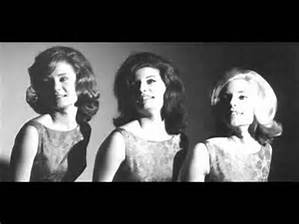 by the Angels. Roy Orbison, Chuck Berry and The Beach Boys were on high rotation at these popular functions as we shimmied, shook and twisted under the tropical night skies. Some of the cooler kids came back from trips back to the States with talk about the protest music of Joan Baez and Bob Dylan- but this music never made the playlists for the hops.
by the Angels. Roy Orbison, Chuck Berry and The Beach Boys were on high rotation at these popular functions as we shimmied, shook and twisted under the tropical night skies. Some of the cooler kids came back from trips back to the States with talk about the protest music of Joan Baez and Bob Dylan- but this music never made the playlists for the hops.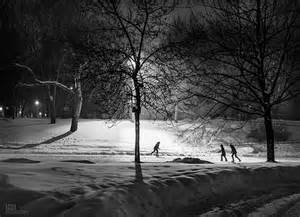 into my mind. How incongruous! was my initial reaction. A poem which describes a rustic pre-war setting among the hop-fields of Kent on a frozen pond seems a million miles from the affluent bubble that was the expatriate community of Aruba in the early sixties.
into my mind. How incongruous! was my initial reaction. A poem which describes a rustic pre-war setting among the hop-fields of Kent on a frozen pond seems a million miles from the affluent bubble that was the expatriate community of Aruba in the early sixties. …then is not death at watch/Within those secret waters? /What wants he but to catch/Earth’s heedless sons and daughters? /With but a crystal parapet/Between, he has his engines set.
…then is not death at watch/Within those secret waters? /What wants he but to catch/Earth’s heedless sons and daughters? /With but a crystal parapet/Between, he has his engines set.  and wan, / Use him as though you love him;/Court him, elude him, reel and pass, /And let him hate you through the glass.
and wan, / Use him as though you love him;/Court him, elude him, reel and pass, /And let him hate you through the glass. The Faith 7 spacecraft carried astronaut Gordon Cooper into space for about 34 hours during which he orbited the Earth 22 times. The purpose of the mission was to test the limits of the Mercury space capsule. Cooper’s flight was about three times longer than any other human space flight that had been completed at that point in history. It also marked the final time that NASA launched a solo orbital mission.
The Faith 7 spacecraft carried astronaut Gordon Cooper into space for about 34 hours during which he orbited the Earth 22 times. The purpose of the mission was to test the limits of the Mercury space capsule. Cooper’s flight was about three times longer than any other human space flight that had been completed at that point in history. It also marked the final time that NASA launched a solo orbital mission. week after Kennedy’s assassination, was destined to chart at number one on the Billboard Hot 100 and cause all of the tweens and teens in Aruba to throw theirs arms in the air in chorus as they joined the less-than-profound shout, I want to hold your ha-a-a-a-a-nd?
week after Kennedy’s assassination, was destined to chart at number one on the Billboard Hot 100 and cause all of the tweens and teens in Aruba to throw theirs arms in the air in chorus as they joined the less-than-profound shout, I want to hold your ha-a-a-a-a-nd?


 first seven words of the song. A tricky question, as King Lear was to find out when his two eldest daughters responded in hyperbolistic terms to his demand to know the quality and quantity of their love for him:
first seven words of the song. A tricky question, as King Lear was to find out when his two eldest daughters responded in hyperbolistic terms to his demand to know the quality and quantity of their love for him: This is Goneril, his eldest. Regan, the second-born sister, not the be outdone, claims, I find she names my very deed of love—/Only she comes too short, that I profess/Myself an enemy to all other joys,/Which the most precious square of sense possesses./And find I am alone felicitate/In your dear highness’ love.
This is Goneril, his eldest. Regan, the second-born sister, not the be outdone, claims, I find she names my very deed of love—/Only she comes too short, that I profess/Myself an enemy to all other joys,/Which the most precious square of sense possesses./And find I am alone felicitate/In your dear highness’ love. 
 ruler of the Sassanid Empire who, upon learning of the infidelity of his wife, had her executed and then, in a stratagem to prevent further infidelity, married and murdered a succession of 1000 virgins after the consummation on the wedding night.
ruler of the Sassanid Empire who, upon learning of the infidelity of his wife, had her executed and then, in a stratagem to prevent further infidelity, married and murdered a succession of 1000 virgins after the consummation on the wedding night. the story from the night before- and so it goes for a thousand and one nights and days until he grows besotted with the wily storyteller and she can relinquish her increasingly wearisome gambit for survival. So, to all you creative types who moan about impending deadlines for the dross you are obliged to provide for a jaded public palate, reflect on the story of Scheherazade and- why not?- filch one of her life-saving tales as a template for your tedious and thankless task.
the story from the night before- and so it goes for a thousand and one nights and days until he grows besotted with the wily storyteller and she can relinquish her increasingly wearisome gambit for survival. So, to all you creative types who moan about impending deadlines for the dross you are obliged to provide for a jaded public palate, reflect on the story of Scheherazade and- why not?- filch one of her life-saving tales as a template for your tedious and thankless task. medallists, Charlie White and Meryl Davis for their free skating routines, this music is an ever-enchanting accompaniment. Hyperbole is the default setting for expositions about love in any genre: bodice-rippers, in particular, would be lost without it.
medallists, Charlie White and Meryl Davis for their free skating routines, this music is an ever-enchanting accompaniment. Hyperbole is the default setting for expositions about love in any genre: bodice-rippers, in particular, would be lost without it. blood, driven by hormones coursing through the bewildered brain, lends itself to excess in everything- including language. And Shakespeare knows full well how to play this card time and again in his drama and poetry- but he can also, consummate show-off that he is, turn it on its head and create a splendid example of litotes, as in sonnet 130:
blood, driven by hormones coursing through the bewildered brain, lends itself to excess in everything- including language. And Shakespeare knows full well how to play this card time and again in his drama and poetry- but he can also, consummate show-off that he is, turn it on its head and create a splendid example of litotes, as in sonnet 130: My mistress eyes are nothing like the sun./ Coral is far more red, than her lips red:/If snow be white, why then her breasts are dun;/If hairs be wires, black wires grow on her head./I have seen roses damasked, red and white,/But no such roses see I in her cheeks;/And in some perfumes is there more delight/Than in the breath that from my mistress reeks./I love to hear her speak, yet well I know/That music hath a far more pleasing sound:/I grant I never saw a goddess go,/ My mistress, when she walks, treads on the ground:/ And yet by heaven, I think my love as rare,/As any she belied with false compare.
My mistress eyes are nothing like the sun./ Coral is far more red, than her lips red:/If snow be white, why then her breasts are dun;/If hairs be wires, black wires grow on her head./I have seen roses damasked, red and white,/But no such roses see I in her cheeks;/And in some perfumes is there more delight/Than in the breath that from my mistress reeks./I love to hear her speak, yet well I know/That music hath a far more pleasing sound:/I grant I never saw a goddess go,/ My mistress, when she walks, treads on the ground:/ And yet by heaven, I think my love as rare,/As any she belied with false compare.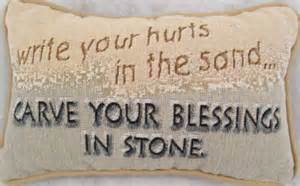
 example, you do, when viewing something like David Attenborough’s trilogy on the Great Barrier Reef, you sing hosannas to whatever forces have produced such splendour. All of my life, I have been entranced by films, exhibitions and documentaries on nature. From deep-sea fumaroles to deep-space imagery of unimaginably distant galaxies; from those infinitesimally small strings that, perhaps, may harmonise our existence to the immensity of all the possible multiverses, I have been enthralled by the mysteries of creation.
example, you do, when viewing something like David Attenborough’s trilogy on the Great Barrier Reef, you sing hosannas to whatever forces have produced such splendour. All of my life, I have been entranced by films, exhibitions and documentaries on nature. From deep-sea fumaroles to deep-space imagery of unimaginably distant galaxies; from those infinitesimally small strings that, perhaps, may harmonise our existence to the immensity of all the possible multiverses, I have been enthralled by the mysteries of creation. Knowing that I will never pierce the inner workings of any of these arcane mysteries, I content myself with just saying: thank you. Glad to be here. Hope I get to stay a bit longer. Lately, I have been counting my blessings. In youth and mid-life, I raged a fair bit about the injustice of it all. Particularly as it applied to me!
Knowing that I will never pierce the inner workings of any of these arcane mysteries, I content myself with just saying: thank you. Glad to be here. Hope I get to stay a bit longer. Lately, I have been counting my blessings. In youth and mid-life, I raged a fair bit about the injustice of it all. Particularly as it applied to me! next weekend; or sipping a glass of shiraz, I watch a neighbour putting in a new roof as I listen, on the radio, to Richard Glover talk about stuff that only people in Sydney and, at a stretch, New South Wales would care about.
next weekend; or sipping a glass of shiraz, I watch a neighbour putting in a new roof as I listen, on the radio, to Richard Glover talk about stuff that only people in Sydney and, at a stretch, New South Wales would care about. While living rather modestly in the outer west of Sydney for the past twenty years, I am aware that my lot is so much better than that so many others who live in this relatively wealthy country of Australia. In the world, most people alive today are living in more straitened circumstances than I.
While living rather modestly in the outer west of Sydney for the past twenty years, I am aware that my lot is so much better than that so many others who live in this relatively wealthy country of Australia. In the world, most people alive today are living in more straitened circumstances than I. getting and spending, I have been able to push this reality to one side. But there are times when something lodges and refuses to be dislodged.
getting and spending, I have been able to push this reality to one side. But there are times when something lodges and refuses to be dislodged. Lodgement Two, it’s 1981 and I have just cashed a cheque from RTE radio in Dublin who have bought a radio play and I go into the supermarket to stock up on some luxuries. Ahead of me, a young woman in threadbare coat, trying to soothe a squalling infant, pushes her trolley with basic necessities to the checkout and rummages through her purse for coins to cover her meagre purchases. She glances at my basket of superfluous goodies and then up and into my eyes.
Lodgement Two, it’s 1981 and I have just cashed a cheque from RTE radio in Dublin who have bought a radio play and I go into the supermarket to stock up on some luxuries. Ahead of me, a young woman in threadbare coat, trying to soothe a squalling infant, pushes her trolley with basic necessities to the checkout and rummages through her purse for coins to cover her meagre purchases. She glances at my basket of superfluous goodies and then up and into my eyes. merely to intone, there but for the grace of God go I. What do you do? And is it enough? In 1990, I watched a documentary film which was prompted by a report by Human Rights’ Commissioner Brian Burdekin into youth homelessness.
merely to intone, there but for the grace of God go I. What do you do? And is it enough? In 1990, I watched a documentary film which was prompted by a report by Human Rights’ Commissioner Brian Burdekin into youth homelessness. In 1991, I was commissioned to write a musical play for a theatre in North Queensland. The play was to celebrate the 10th anniversary of the theatre’s establishment. A friend, visiting from Ireland, had been having a few drinks with the theatre’s director and casually mentioned that I had written plays in Ireland.
In 1991, I was commissioned to write a musical play for a theatre in North Queensland. The play was to celebrate the 10th anniversary of the theatre’s establishment. A friend, visiting from Ireland, had been having a few drinks with the theatre’s director and casually mentioned that I had written plays in Ireland. the song that follows. Its epigraph, if it were to have one, would be Matthew 18:6, If anyone causes one of these little ones…to stumble, it would be better for them to have a large millstone hung around their neck and to be drowned in the depths of the sea. There should be a run on millstones.
the song that follows. Its epigraph, if it were to have one, would be Matthew 18:6, If anyone causes one of these little ones…to stumble, it would be better for them to have a large millstone hung around their neck and to be drowned in the depths of the sea. There should be a run on millstones.
 with great pleasure- Fine words! I wonder where you stole them. Hold your horses, Jonathan Swift! If you’d given me the time, I would have admitted my debt to Clarence Darrow, a famous- some would say, infamous- American lawyer. Will you be content if I quote lines from what I consider a minor masterpiece of yours?
with great pleasure- Fine words! I wonder where you stole them. Hold your horses, Jonathan Swift! If you’d given me the time, I would have admitted my debt to Clarence Darrow, a famous- some would say, infamous- American lawyer. Will you be content if I quote lines from what I consider a minor masterpiece of yours? Your stinging satire, A Modest Proposal, published anonymously in 1729, in which an unnamed proposer coolly advances his plan for simultaneously relieving Irish poverty and increasing the store of protein available for consumption by the moneyed classes, places your heart in Ireland with the urban and rural poor, even though the ambitions thronging your head wished for preferment among the upper echelons in England.
Your stinging satire, A Modest Proposal, published anonymously in 1729, in which an unnamed proposer coolly advances his plan for simultaneously relieving Irish poverty and increasing the store of protein available for consumption by the moneyed classes, places your heart in Ireland with the urban and rural poor, even though the ambitions thronging your head wished for preferment among the upper echelons in England. tomorrow you can make it a crime to teach it in the private schools…After a while, your honor, it is the setting of man against man and creed against creed until with flying banners and beating drums we are marching backward to the glorious ages of the sixteenth century when bigots lighted fagots to burn the men who dared to bring any intelligence and enlightenment and culture to the human mind.
tomorrow you can make it a crime to teach it in the private schools…After a while, your honor, it is the setting of man against man and creed against creed until with flying banners and beating drums we are marching backward to the glorious ages of the sixteenth century when bigots lighted fagots to burn the men who dared to bring any intelligence and enlightenment and culture to the human mind.  Gulliver’s Travels and for his much-quoted words, principally I hate and detest that animal called man. But then he goes on to say, although I heartily love John, Peter, Thomas, and so forth. A true misanthrope wouldn’t take the time or effort to produce polemics aimed at altering the behaviour of his fellow human beings for the better.
Gulliver’s Travels and for his much-quoted words, principally I hate and detest that animal called man. But then he goes on to say, although I heartily love John, Peter, Thomas, and so forth. A true misanthrope wouldn’t take the time or effort to produce polemics aimed at altering the behaviour of his fellow human beings for the better.
 as representatives of the dichotomy between the frost and the fire: Robert Frost and Henry Lawson. Frost, in a well-know poem observes:
as representatives of the dichotomy between the frost and the fire: Robert Frost and Henry Lawson. Frost, in a well-know poem observes: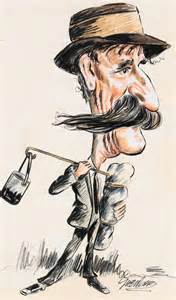
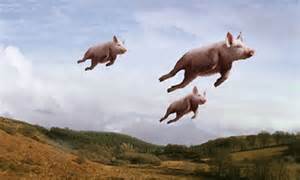
 College Dictionary is, a mere wish, unaccompanied by an effort to obtain it or volition in its weakest form. But what is the word if your wish is volition in its strongest form, that you wish for it with all your heart and soul- but that any effort to obtain it would be in vain because what you wish for is impossible? My curiosity about this led me, via the admirable site, Wordnik, to St Francis de Sales, who lived between 1567 and 1622.
College Dictionary is, a mere wish, unaccompanied by an effort to obtain it or volition in its weakest form. But what is the word if your wish is volition in its strongest form, that you wish for it with all your heart and soul- but that any effort to obtain it would be in vain because what you wish for is impossible? My curiosity about this led me, via the admirable site, Wordnik, to St Francis de Sales, who lived between 1567 and 1622. He was declared the patron saint of writers and journalists in 1923 by Pope Pius XI because of his use of broadsheets and books to influence opinion. A bit of a mystic, he wrote, in his Treatise on the Love of God, we may well say: I would desire to be young; but we do not say: I desire to be young; seeing that this is not possible; and this motion is called a wishing, or as the Scholastics term it a velleity, which is nothing else but a commencement of willing, not followed out, because the will, by reason of impossibility or extreme difficulty, stops her motion, and ends it in this simple affection of a wish.
He was declared the patron saint of writers and journalists in 1923 by Pope Pius XI because of his use of broadsheets and books to influence opinion. A bit of a mystic, he wrote, in his Treatise on the Love of God, we may well say: I would desire to be young; but we do not say: I desire to be young; seeing that this is not possible; and this motion is called a wishing, or as the Scholastics term it a velleity, which is nothing else but a commencement of willing, not followed out, because the will, by reason of impossibility or extreme difficulty, stops her motion, and ends it in this simple affection of a wish.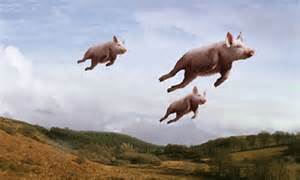 continued to explore the issue. The Indonesians have a saying, Bagai pungguk merindukan bulan, which translates as, like an owl craving for the moon meaning, to wish for something impossible. Porcine aviation is an indicator of impossibility in English- and also, incidentally, in German- Schweine können fliegen. The Greeks, Wikipedia informs me, have a word for it: Adynaton, which is a figure of speech in the form of hyperbole taken to such extreme lengths as to insinuate a complete impossibility.
continued to explore the issue. The Indonesians have a saying, Bagai pungguk merindukan bulan, which translates as, like an owl craving for the moon meaning, to wish for something impossible. Porcine aviation is an indicator of impossibility in English- and also, incidentally, in German- Schweine können fliegen. The Greeks, Wikipedia informs me, have a word for it: Adynaton, which is a figure of speech in the form of hyperbole taken to such extreme lengths as to insinuate a complete impossibility. Andrew Marvell, in his best-known poem, To His Coy Mistress, supplies a great example of the usage, Had we but world enough, and time/This coyness, lady, were no crime./We would sit down, and think which way/ To walk, and pass our long love’s day./Thou by the Indian Ganges’ side/Shouldst rubies find; I by the tide/Of Humber would complain. I would/Love you ten years before the flood/And you should, if you please, refuse/Till the conversion of the Jews.
Andrew Marvell, in his best-known poem, To His Coy Mistress, supplies a great example of the usage, Had we but world enough, and time/This coyness, lady, were no crime./We would sit down, and think which way/ To walk, and pass our long love’s day./Thou by the Indian Ganges’ side/Shouldst rubies find; I by the tide/Of Humber would complain. I would/Love you ten years before the flood/And you should, if you please, refuse/Till the conversion of the Jews.
 My first encounter with the word, velleity, was in 1969 when I was studying T.S. Eliot as part of my English course. I felt, unlike the lecturer, a sympathy for the older woman in
My first encounter with the word, velleity, was in 1969 when I was studying T.S. Eliot as part of my English course. I felt, unlike the lecturer, a sympathy for the older woman in  much they mean to me, my friends,/And how, how rare and strange it is, to find…a friend who has these qualities,/Who has, and gives/Those qualities upon which friendship lives. We, as readers are aware of the underlying desperation of the woman but all the younger member of this drawing room drama is aware of is, inside my brain a dull tom-tom begins/Absurdly hammering a prelude of its own.
much they mean to me, my friends,/And how, how rare and strange it is, to find…a friend who has these qualities,/Who has, and gives/Those qualities upon which friendship lives. We, as readers are aware of the underlying desperation of the woman but all the younger member of this drawing room drama is aware of is, inside my brain a dull tom-tom begins/Absurdly hammering a prelude of its own. 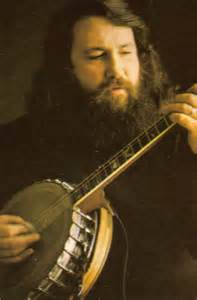
 recorder started spinning and it snared a virtuoso on the tenor banjo playing one of the oldest Celtic dances, Kitty Come Down From Limerick. A little before this, around 655 A.D. an unnamed Irish monk set down on sheepskin parchment some quite modern thoughts concerning the manipulation of time in a treatise entitled, De mirabilibus sacrae scripturae.
recorder started spinning and it snared a virtuoso on the tenor banjo playing one of the oldest Celtic dances, Kitty Come Down From Limerick. A little before this, around 655 A.D. an unnamed Irish monk set down on sheepskin parchment some quite modern thoughts concerning the manipulation of time in a treatise entitled, De mirabilibus sacrae scripturae.  In my mind, I see Sam hopping and leaping about in a painful parody of that most balletic of Irish dance forms- the slip jig. Now, George the Bish would never have resorted to the limerick as a form for philosophical exploration but a clever English scholar and priest, one Ronald Knox, wittily used the form to poke fun at Berkeley’s immaterialism,
In my mind, I see Sam hopping and leaping about in a painful parody of that most balletic of Irish dance forms- the slip jig. Now, George the Bish would never have resorted to the limerick as a form for philosophical exploration but a clever English scholar and priest, one Ronald Knox, wittily used the form to poke fun at Berkeley’s immaterialism, nation: one snowy weekend in 1926, he broadcast on BBC Radio the purported news of a revolutionary uprising in London where rabid malcontents lynched government ministers and destroyed the Houses of Parliament, bringing Big Ben crashing down.
nation: one snowy weekend in 1926, he broadcast on BBC Radio the purported news of a revolutionary uprising in London where rabid malcontents lynched government ministers and destroyed the Houses of Parliament, bringing Big Ben crashing down. The value of philosophy to survival is most clearly seen, not in abstruse, turgid tomes of which there are libraries-full, but in poetry such as the early Irish poet, Amergin who, in The Mystery, writes,
The value of philosophy to survival is most clearly seen, not in abstruse, turgid tomes of which there are libraries-full, but in poetry such as the early Irish poet, Amergin who, in The Mystery, writes, Sandburg, who informs us in Who Am I?,
Sandburg, who informs us in Who Am I?,  Even in the demotic voice, the resilience and wisdom of the people ring out, as here in a defiant shout by Paul Lawrence Dunbar, 19th Century African American poet’s Philosophy,
Even in the demotic voice, the resilience and wisdom of the people ring out, as here in a defiant shout by Paul Lawrence Dunbar, 19th Century African American poet’s Philosophy, misery in de back;/An’ you don’t fin’ dem a-smilin’ w’en dey ‘s hongry ez kin be,/Leastways, dat ‘s how human natur’ allus seems to ‘pear to me./We is mos’ all putty likely fu’ to have our little cares,/An’ I think we ‘se doin’ fus’ rate w’en we jes’ go long and bears,/Widout breakin’ up ouah faces in a sickly so’t o’ grin,/W’en we knows dat in ouah innards we is p’intly mad ez sin./Oh dey ‘s times fu’ bein’ pleasant an’ fu’ goin’ smilin’ roun’,/’Cause I don’t believe in people allus totin’ roun’ a frown,/But it’s easy ‘nough to titter w’en de stew is smokin’ hot,/But hit’s mighty ha’d to giggle w’en dey’s nuffin’ in de pot. ‘Nuff said.
misery in de back;/An’ you don’t fin’ dem a-smilin’ w’en dey ‘s hongry ez kin be,/Leastways, dat ‘s how human natur’ allus seems to ‘pear to me./We is mos’ all putty likely fu’ to have our little cares,/An’ I think we ‘se doin’ fus’ rate w’en we jes’ go long and bears,/Widout breakin’ up ouah faces in a sickly so’t o’ grin,/W’en we knows dat in ouah innards we is p’intly mad ez sin./Oh dey ‘s times fu’ bein’ pleasant an’ fu’ goin’ smilin’ roun’,/’Cause I don’t believe in people allus totin’ roun’ a frown,/But it’s easy ‘nough to titter w’en de stew is smokin’ hot,/But hit’s mighty ha’d to giggle w’en dey’s nuffin’ in de pot. ‘Nuff said.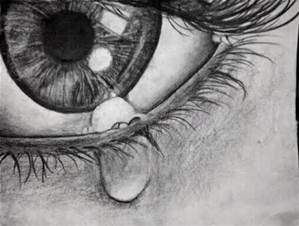
 depressive illnesses. Admittedly, such days are mostly in the distant past- presently, it’s the very odd day when I get out of the sunny side of the bed with a cheerful tune on my lips, just a-rarin’ to get out into the light and set the world to rights.
depressive illnesses. Admittedly, such days are mostly in the distant past- presently, it’s the very odd day when I get out of the sunny side of the bed with a cheerful tune on my lips, just a-rarin’ to get out into the light and set the world to rights. as a promoter of longevity and which also counsel men to access their feminine side- but take care to channel Pollyanna’s I-am-a-happy-little-sunbeam– rather than Cassandra’s glass-half-empty vibe. If you are- what is the word?- proactive in your search for mirth, perhaps a spot of laughter yoga may be just what the doctor ordered.
as a promoter of longevity and which also counsel men to access their feminine side- but take care to channel Pollyanna’s I-am-a-happy-little-sunbeam– rather than Cassandra’s glass-half-empty vibe. If you are- what is the word?- proactive in your search for mirth, perhaps a spot of laughter yoga may be just what the doctor ordered.
 I don’t think of myself as a flinty-hearted brute but I doubt that I would have cried more than once or twice in the past year- if even that! But, then, I was formed by that generation that had coped with the fallout of World War Two by not looking back and by damping down any stirrings of emotion by concentrating on, work, kids, the future- indeed anything that helped make it go away, even booze, for some.
I don’t think of myself as a flinty-hearted brute but I doubt that I would have cried more than once or twice in the past year- if even that! But, then, I was formed by that generation that had coped with the fallout of World War Two by not looking back and by damping down any stirrings of emotion by concentrating on, work, kids, the future- indeed anything that helped make it go away, even booze, for some. cameras. Crocodile tears have a long lineage as a mark of hypocrisy in the shedder but this should not obscure the fact that certain animals do seem to demonstrate a capacity for grief that is more than a just fleeting response to mortality.
cameras. Crocodile tears have a long lineage as a mark of hypocrisy in the shedder but this should not obscure the fact that certain animals do seem to demonstrate a capacity for grief that is more than a just fleeting response to mortality.

 from a sermon delivered at St Paul’s in 1910 upon the death of King Edward VII: it starts, Death is nothing at all./I have only slipped away to the next room… It concludes, I am but waiting for you./For an interval./Somewhere. Very near./Just around the corner.
from a sermon delivered at St Paul’s in 1910 upon the death of King Edward VII: it starts, Death is nothing at all./I have only slipped away to the next room… It concludes, I am but waiting for you./For an interval./Somewhere. Very near./Just around the corner. 
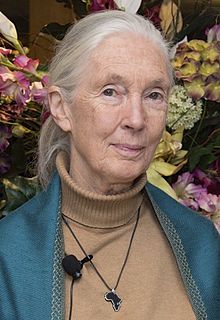 can think about our existence here on Earth. We either agree with Macbeth that life is nothing more than a ‘tale told by an idiot,’ a purposeless emergence of life-forms including the clever, greedy, selfish, and unfortunate species that we call homo sapiens – the ‘evolutionary goof.’ Or we believe that, as Pierre Teilhard de Chardin put it, ‘There is something afoot in the universe, something that looks like gestation and birth.’ In other words, a plan, a purpose to it all.
can think about our existence here on Earth. We either agree with Macbeth that life is nothing more than a ‘tale told by an idiot,’ a purposeless emergence of life-forms including the clever, greedy, selfish, and unfortunate species that we call homo sapiens – the ‘evolutionary goof.’ Or we believe that, as Pierre Teilhard de Chardin put it, ‘There is something afoot in the universe, something that looks like gestation and birth.’ In other words, a plan, a purpose to it all.  A rather aimless, gormless stumblebum right out of a Wodehouse story as the following anecdote will illustrate: the setting; Cushendall golf club, a pleasant, undemanding 9-hole links course in the heart of the Glens of Antrim. The time; a summer’s evening in the early-80s. The occasion; a talk by poet Seamus Heaney. I had taken up golf shortly before this and was quite amazingly bad at it- but that’s a story for another occasion, perhaps.
A rather aimless, gormless stumblebum right out of a Wodehouse story as the following anecdote will illustrate: the setting; Cushendall golf club, a pleasant, undemanding 9-hole links course in the heart of the Glens of Antrim. The time; a summer’s evening in the early-80s. The occasion; a talk by poet Seamus Heaney. I had taken up golf shortly before this and was quite amazingly bad at it- but that’s a story for another occasion, perhaps. through most of what must have been a most illuminating evening with a revered poet. In my defence, may I say that I have heard famous Seamus on a couple of other occasions where I was totally awake for the duration. At any rate, at the end of the talk I found myself in the line-up to meet the poet who was signing copies of his latest book of verse.
through most of what must have been a most illuminating evening with a revered poet. In my defence, may I say that I have heard famous Seamus on a couple of other occasions where I was totally awake for the duration. At any rate, at the end of the talk I found myself in the line-up to meet the poet who was signing copies of his latest book of verse. And then, the events of the previous night came back in splinters of chagrined recollection. But, you know, like a teenage fan of a boy band, I didn’t wash that arm for a week and smiled at the erudite joke, which recalls the time when the emperor Constantine, before the Battle of the Milvian Bridge, has a vision in which Christ tells him to use the cross as a symbol to prevail over his enemies. The rest, as they say, is history.
And then, the events of the previous night came back in splinters of chagrined recollection. But, you know, like a teenage fan of a boy band, I didn’t wash that arm for a week and smiled at the erudite joke, which recalls the time when the emperor Constantine, before the Battle of the Milvian Bridge, has a vision in which Christ tells him to use the cross as a symbol to prevail over his enemies. The rest, as they say, is history. conquests for me, though, other than those involving a tussle with an innocent pint or two of ale. Or times I have wrestled with various forms of writing, some of them involving song. The writing of this journal has taken almost 14 months between 27 April 2015 and 14 June 2016. The song component took much longer, of course.
conquests for me, though, other than those involving a tussle with an innocent pint or two of ale. Or times I have wrestled with various forms of writing, some of them involving song. The writing of this journal has taken almost 14 months between 27 April 2015 and 14 June 2016. The song component took much longer, of course. At a marking conference in Townsville, in the early 90s, I remember defending a teenage student’s creative essay as a valid example of the form, citing Elizabeth Smart’s By Grand Central Station I Sat Down and Wept, as an exemplar of the style the student used.
At a marking conference in Townsville, in the early 90s, I remember defending a teenage student’s creative essay as a valid example of the form, citing Elizabeth Smart’s By Grand Central Station I Sat Down and Wept, as an exemplar of the style the student used. I’m with him, also, as a firm believer that discretion is the better part of valour: better a live poet living to a disgraceful old age than a youthful, dead hero where someone else gets to write a pretty epitaph on your stone. As Archilochus versifies:
I’m with him, also, as a firm believer that discretion is the better part of valour: better a live poet living to a disgraceful old age than a youthful, dead hero where someone else gets to write a pretty epitaph on your stone. As Archilochus versifies: